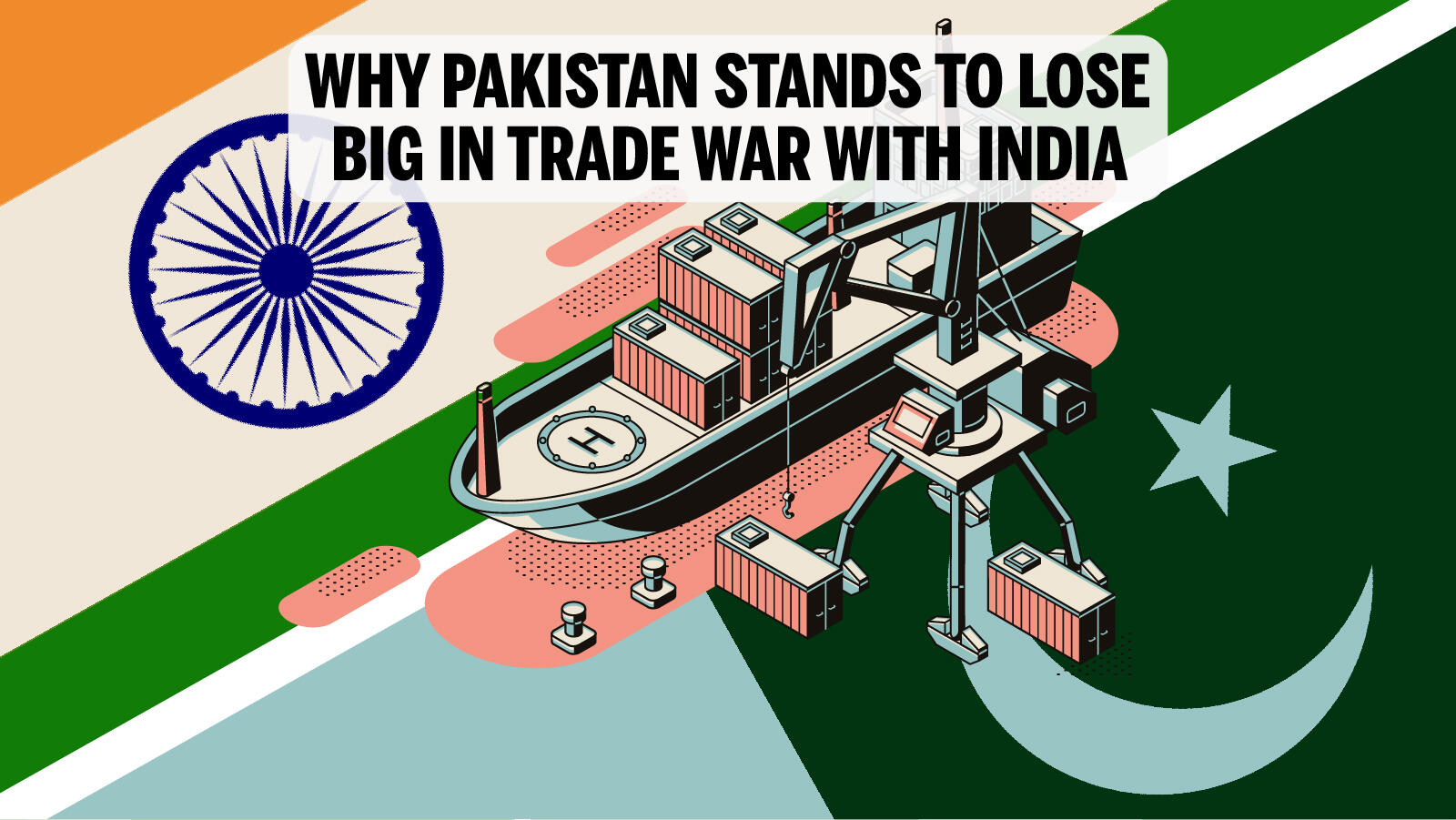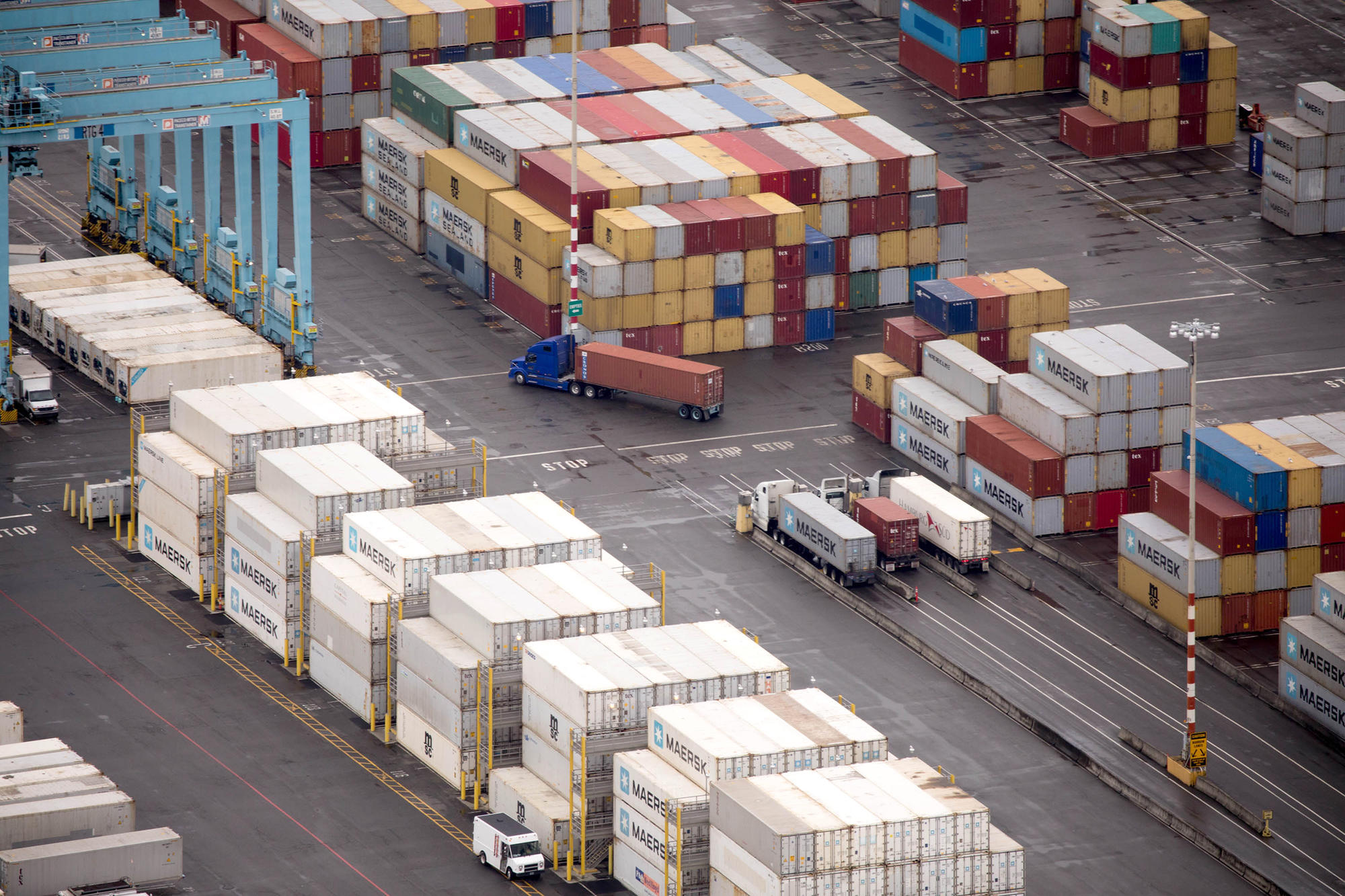Why India Is Avoiding Trade With Pakistan, Turkey, And Azerbaijan

Table of Contents
Geopolitical Tensions and Security Concerns as a Major Obstacle to India's Trade
Geopolitical considerations significantly impact India's trade policies, particularly concerning its relationships with Pakistan, Turkey, and Azerbaijan. These relationships are fraught with complexities stemming from historical conflicts, regional rivalries, and security concerns.
The India-Pakistan Relationship: A History of Conflict and Distrust
The India-Pakistan relationship is arguably the most significant factor influencing India's trade restrictions. Decades of conflict, primarily centered on the Kashmir dispute, have fostered deep mistrust.
- Kashmir conflict: The unresolved territorial dispute over Kashmir remains a major point of contention, fueling animosity and hindering cooperation.
- Cross-border terrorism: Cross-border terrorist attacks emanating from Pakistan have severely damaged bilateral relations and created a climate of insecurity, making normalized trade extremely difficult.
- Military standoffs: Frequent military standoffs along the Line of Control (LoC) exacerbate tensions and undermine any potential for trade normalization.
- Lack of trust-building measures: The absence of meaningful trust-building measures between the two nations further impedes progress on trade discussions.
- Frequent diplomatic spats: Recurring diplomatic spats and accusations hinder the creation of a conducive environment for trade agreements.
The 1999 Kargil War, for example, dramatically impacted bilateral trade, demonstrating how conflict directly translates into trade disruptions. The ongoing security concerns related to cross-border terrorism continue to overshadow any potential for substantial economic engagement.
Turkey's Balancing Act: Regional Alliances and Competing Interests
Turkey's increasingly close relationship with Pakistan poses a challenge to India's trade interests. Turkey's stance on the Kashmir issue, often seen as supportive of Pakistan's position, raises concerns in India about its geopolitical intentions.
- Turkey's relationship with Pakistan: The strengthening military and economic ties between Turkey and Pakistan are viewed with suspicion in India, suggesting a potential threat to its strategic interests.
- Turkey's stance on Kashmir: Turkey's perceived pro-Pakistan stance on the Kashmir issue further complicates the potential for enhanced trade relations with India.
- Potential for supporting Pakistan's interests: Concerns exist that Turkey might utilize its economic leverage to indirectly support Pakistan's interests, potentially harming India's economic security.
- India's concerns about Turkish geopolitical influence: India is wary of Turkey's growing geopolitical influence in the region, particularly given its relations with Pakistan.
- Lack of clear trade pathways: The absence of clearly defined trade pathways and mechanisms further hinders the development of strong economic ties.
Turkey's strategic alliances and its foreign policy choices create uncertainties for India, prompting a cautious approach to trade.
Azerbaijan's Proximity to Regional Instability: Cautious Approach by India
Azerbaijan's geographical location, bordering Iran and Russia, introduces significant geopolitical complexities. This proximity to potential instability influences India's risk assessment regarding trade expansion.
- Azerbaijan's geopolitical location: Azerbaijan’s strategic location near the Caucasus and its proximity to Iran and Russia makes it a region of complex geopolitical dynamics.
- Its relations with other regional players: Azerbaijan's relationships with other regional players, particularly Iran and Russia, necessitate careful consideration of potential impacts on India's trade interests.
- Potential risks associated with increased trade: Increased trade could expose India to potential risks stemming from regional instability, including disruptions to trade routes and security concerns.
- Concerns about regional instability impacting trade routes and security: The potential for regional conflicts or political upheavals impacting trade routes and overall security is a significant deterrent.
The inherent risks associated with increased trade in a volatile region encourage India to adopt a cautious, measured approach.
Economic Factors Influencing India's Trade Strategies
Beyond geopolitical considerations, economic factors also play a crucial role in shaping India's trade policies. These factors involve a focus on diversification, trade imbalances, and the protection of domestic industries.
Diversification of Trade Partners: Reducing Dependence on Specific Regions
India prioritizes diversifying its trade partnerships to reduce its dependence on any single region or country. This strategy minimizes risks associated with geopolitical instability or economic fluctuations in specific areas.
- India's focus on strengthening ties with other nations: India actively seeks to broaden its trade relationships with various countries to create a more resilient economic ecosystem.
- The pursuit of broader economic partnerships: India engages in various free trade agreements and other economic partnerships to expand its trade reach.
- Reducing reliance on potentially unstable regions: Diversification is a key strategy for reducing reliance on regions susceptible to political or economic volatility.
This proactive approach ensures economic stability and reduces vulnerability to potential disruptions.
Trade Imbalances and Protectionist Measures
Concerns about trade deficits and the need to protect domestic industries often lead to the implementation of protectionist measures.
- Concerns about trade deficits with specific countries: Trade imbalances with certain countries prompt India to adopt measures to ensure a more balanced trade relationship.
- The use of tariffs and other protectionist measures to safeguard domestic industries: India may utilize tariffs and other protectionist tools to safeguard its domestic industries from unfair competition.
- The need to maintain a balanced trade relationship: India aims for balanced trade relationships to ensure economic stability and sustainable growth.
These measures aim to create a level playing field for domestic businesses and maintain a healthy economic balance.
Domestic Political Considerations and Public Opinion
Domestic political considerations and public sentiment significantly shape India's foreign policy decisions, including its approach to trade.
Public Sentiment Towards Pakistan: A Significant Hurdle
Negative public opinion towards Pakistan in India poses a major obstacle to normalized trade. This sentiment, fueled by historical events and ongoing security concerns, makes it politically challenging to pursue significant trade liberalization.
- Negative public opinion in India regarding Pakistan: Public sentiment remains largely negative toward Pakistan due to historical grievances and security concerns.
- The impact of nationalist sentiment on trade policy: Nationalist sentiments influence public opinion and, consequently, government policy on trade with Pakistan.
- The difficulty in overcoming strong public resistance to increased trade with Pakistan: Overcoming public resistance to increased trade with Pakistan presents a significant political challenge for the government.
The strong anti-Pakistan sentiment within India presents a substantial hurdle to improved trade relations.
Conclusion
India's limited trade with Pakistan, Turkey, and Azerbaijan is a multifaceted issue, driven by a complex interplay of geopolitical tensions, economic considerations, and domestic political realities. Security concerns, regional instability, and deeply rooted historical grievances significantly impede the development of robust trade relationships. While economic diversification and risk mitigation are central to India's overall trade strategy, overcoming existing barriers requires addressing deeply entrenched trust issues and promoting greater regional stability. Understanding these factors is paramount for comprehending India's approach to international trade and its ongoing recalibration of its trade restrictions. Further analysis of India's evolving trade restrictions and regional diplomatic initiatives will provide valuable insight into potential future shifts in its trade policies.

Featured Posts
-
 Ranking Taylor Swifts Taylors Version Albums A Critical Review
May 18, 2025
Ranking Taylor Swifts Taylors Version Albums A Critical Review
May 18, 2025 -
 Amanda Bynes A Strong Response To Her Struggles In The Spotlight
May 18, 2025
Amanda Bynes A Strong Response To Her Struggles In The Spotlight
May 18, 2025 -
 Top New Music Releases This Week Featuring Ezra Furman Billy Nomates And Damiano David
May 18, 2025
Top New Music Releases This Week Featuring Ezra Furman Billy Nomates And Damiano David
May 18, 2025 -
 Why India Is Avoiding Trade With Pakistan Turkey And Azerbaijan
May 18, 2025
Why India Is Avoiding Trade With Pakistan Turkey And Azerbaijan
May 18, 2025 -
 13 Year Prison Sentence For Australian Fighting In Ukraine Russias Verdict
May 18, 2025
13 Year Prison Sentence For Australian Fighting In Ukraine Russias Verdict
May 18, 2025
Latest Posts
-
 The Impact Of Tariffs On Southwest Washingtons Economy
May 18, 2025
The Impact Of Tariffs On Southwest Washingtons Economy
May 18, 2025 -
 Southwest Washington Faces Economic Headwinds Due To Tariffs
May 18, 2025
Southwest Washington Faces Economic Headwinds Due To Tariffs
May 18, 2025 -
 Southwest Washington Tariffs And The End Of The Status Quo
May 18, 2025
Southwest Washington Tariffs And The End Of The Status Quo
May 18, 2025 -
 The Unexpected Economic Advantages Of Hosting A Large Rave
May 18, 2025
The Unexpected Economic Advantages Of Hosting A Large Rave
May 18, 2025 -
 Analyzing The Economic Contribution Of A Successful Rave
May 18, 2025
Analyzing The Economic Contribution Of A Successful Rave
May 18, 2025
